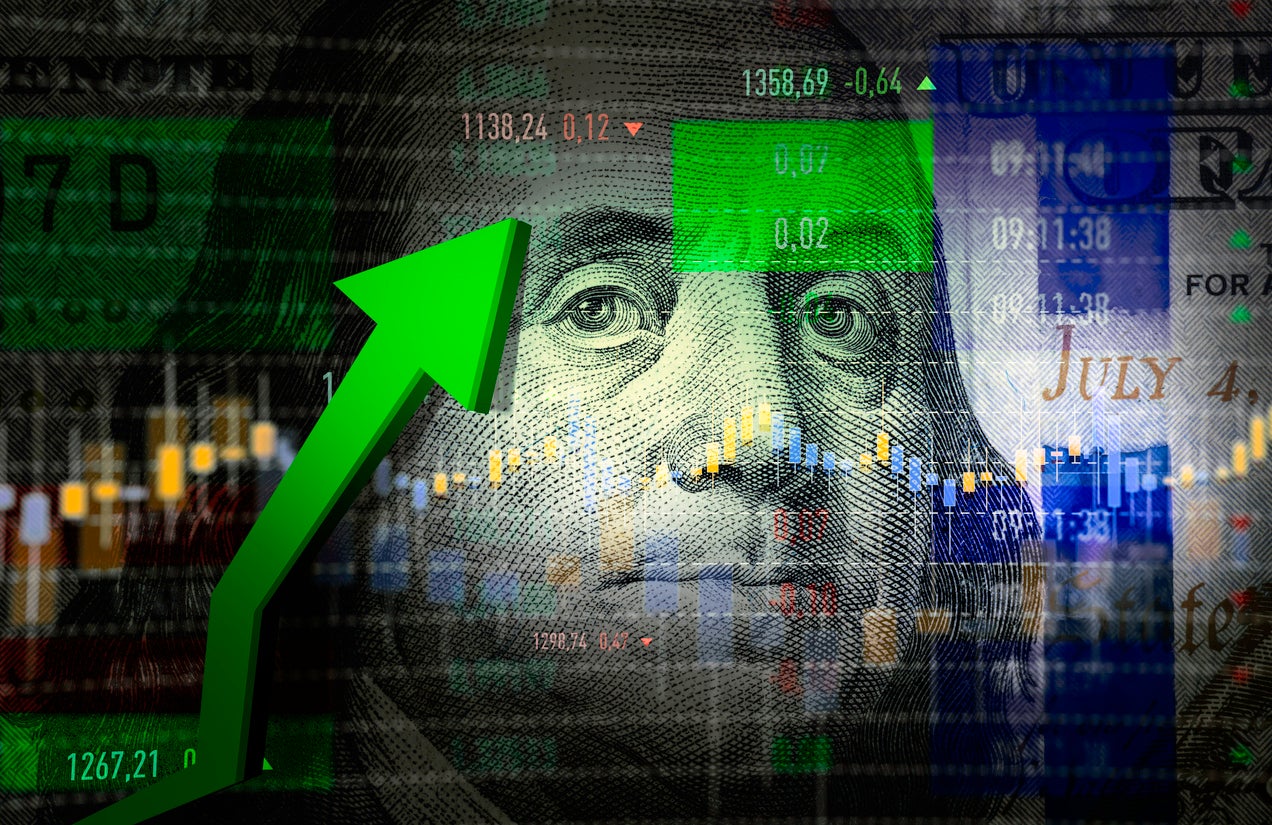The brutal truth is that the Afghanistan crisis will have no impact on the US economy
No one is going to start buying fewer US goods and more Russian and Chinese as a result of the pullout, writes Hamish McRae


The political humiliation of the US abroad runs counter to the country’s economic success at home. Why, despite the supposed damage to American prestige, is the dollar decently up on the level of early this month, when prospects in Afghanistan seemed decidedly brighter?
There is a simple explanation. In the brutal calculations that the markets make, Afghanistan does not matter. It is a tiny economy, with the World Bank estimating its GDP at just under $20bn. That is smaller than that of Reading, at £16.4bn or $22.5bn.
So – and it is most uncomfortable to have to acknowledge this – what happens is of huge humanitarian and political significance, but of no economic importance.
There is a further element in the calculation, which is that political fallout will not damage the US economy. The US may have lost prestige vis-à-vis Russia and China, but no one is going to buy fewer US goods and more Russian and Chinese as a result of the pullout.
Meanwhile, the US economy powers on. It is now back to its pre-pandemic size, unlike the UK, which does not look like getting there until the final quarter of this year. Shares are at record highs, with the S&P 500 – the index of the largest US enterprises – up 1.5 per cent in the past month and more than 30 per cent in the past year. The job market is driving upwards, with unemployment falling last month to 5.4 per cent from 5.9 per cent in June. Demand for labour is pushing wages up, which will support consumption through the autumn. And all this is happening despite the resurgence of Covid-19 in America, which has pushed up the daily death toll.
By contrast, the prospects for China, now acknowledged to be the great US rival for the coming decades, look darker. It is still growing rapidly, but economists have started to downgrade their forecasts. Chip shortages and recurrent outbreaks of the virus are holding things back, and financial confidence is uneven. To take one measure of that, share prices, the Shanghai Stock Exchange index is up just 4 per cent on the past 12 months, and well off its peak last February.
Why should there be such confidence in the US economy? I think there are two answers. The first is unequivocally positive. US companies are doing well. Profits are up, they are hiring, the high-tech sector is still scoring more hits – for example, Apple, which is now America’s most valuable company, is expected to bring out a range of new products next month. If US enterprises keep this momentum up, you can begin to justify the very high stock market valuations put upon them. Maybe the boom can continue for a while yet.
The second answer is more uncertain. To some extent at least, the economy is being puffed up by cheap money – and plenty of it. We will get more of a feeling this week for the future policy of the Federal Reserve from the annual gathering of central bankers at Jackson Hole in Wyoming – except that this year is not in Wyoming, because last Friday they decided to make it a virtual meeting instead.
It is a strange event, a sort of private/public gathering of the world’s top central bankers. where they can talk to each other about their role in the world economy. It is private in the sense that they can talk to each other off the record, but public in that anything they say openly is likely to move the markets. Jerome Powell, chair of the Fed, is scheduled to speak this Friday, and everyone will be seeking clues as to when and how the Fed will start to take its foot off the monetary accelerator pedal.
There’s the rub. There is great confidence in the US economy; witness the behaviour of the markets. But maybe that confidence is artificially inflated by all this money that the Fed is printing. We don’t know.
What we do know, though, is that there is a chasm between American politics and American economics. We have learnt that in the past few days. Is it a humiliation for the US, as the chaotic scenes in Kabul resemble that of the last helicopter leaving the rooftop in Saigon in 1975? Maybe, but it does not feel a humiliation for people getting new jobs in America, and still less for those fortunate enough to own Apple shares.



Join our commenting forum
Join thought-provoking conversations, follow other Independent readers and see their replies
Comments